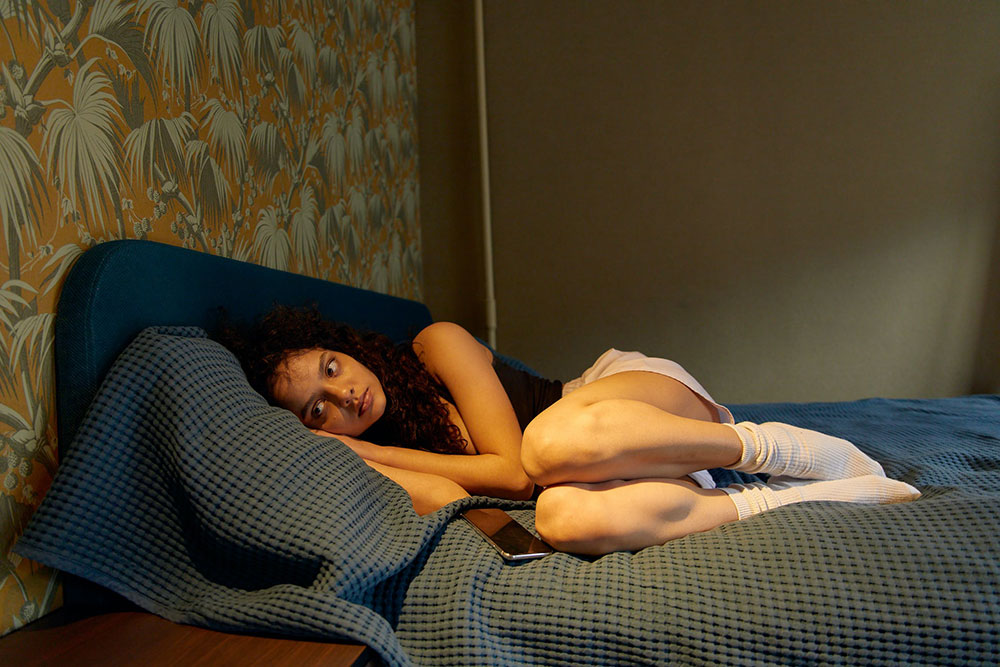Do you want to know if teen anxiety is normal or not? Having depression and anxiety is quite a normal stress reaction, but sometimes extraordinary struggles in youth can be signs of anxiety in teens.
Almost all teenagers go through some anxiety. According to the national institute of mental health, 32 percent of teens suffer from anxiety. Anxiety is considered quite a normal reaction to tension and stress. It makes youth handle some difficult situations. Many things like public speaking, exams, and some athletic competitions can cause chaos and uneasiness in teens.
However, in some teenagers, anxiety causes more severe symptoms and can affect their relations with their family and friends, daily activities, etc. When anxiety starts affecting someone’s personal life or life activities, it is considered that the person suffers from an anxiety disorder.
Signs of anxiety in teens
As you know, anxiety is common in teens nowadays; as a parent or caretaker, you must keep an eye on your teen child. If they show unusual behavior, response, and other physical changes, take it seriously because these could be signs of early anxiety disorder. Here are a few signs of Anxiety in Teens mentioned below.
Behavioral changes
If your child is suffering from anxiety, you will feel behavioral changes in them, and you will see they behave differently. You may see them:
- Avoids social gathering
- Always staying silent in gatherings and class
- Less concentration
- Showing anger
- Skip school
- Shows compulsive behavior like frequent handwashing and arranging things
- Does not take part in school activities
- Does not play games with friends
- Always wants to stay alone in his or her room
Physical signs of anxiety
Here are a few physical changes you will see in your child
- Feels tired after a small activity
- Sudden changes in eating habits
- Feels headache or stomach ache
- Feels shivering of body or hands
- Has sleeping issues such as frequent nightmares and an inability to fall asleep easily
Emotional signs of anxiety
Here are a few emotional signs of Anxiety in Teens mentioned here
- Always shows anger without any reason
- Cries over small things
- Feels Less confident in front of people
- Keeps everything secret
- Does not trust his/her own ability
- Scared of making mistakes
- Thinks more about future
- Has a fear of losing a loved one
- Suffers Panic attacks
How to help your child cope with anxiety?
Being a parent, you have to help your child if he is experiencing anxiety .because in this severe condition, you are the only one who can help him/her in the initial stage.
Here are a few ways through which you can help your child to fight against anxiety
Talk to your child about their anxiety and depression
Please pay attention to your child and talk about what they feel. Reassure your teen about their worries, and tell them that you will be with them no matter what.
Help them to figure out the conditions which make them feel worse
Have a conversation about the times when they feel more aroused and unsettled. this can help them to learn the things that trigger them. Make a plan about what changes could be made at home or in their school routine to make your child feel better.
Then help them to find out what helps soothe them
Asking your teen about the things that help them to relieve symptoms of anxiety can be particularly helpful. Lisewide, you can expose your child to the things you may do to relax. This could be things like exercise, painting, yoga, music, or dance. These activities may help him feel calmer
Make Boxes
It helps your child write down their worries and put them in a worry box, thus providing them with a physical place to address their fears. Your teen can also keep a self-soothe box where they can fill things like scented oils, fidget spinners, etc., which will help them divert their thoughts in times of distress and anxiety.
Anxiety in teens is normal, so you don’t necessarily need to panic as a parent. Remember, as you try to calm your child you may need to check in with yourself. Supporting your teen with their anxiety could help to develop a healthy and friendly relationship with your child. Your positive attitude will give your child the power to fight against anxiety. If your teen is struggling with anxiety, contact us today.


Recent Comments